Pre Algebra Course Description
Pre Algebra Course Description - Concepts are introduced incrementally and are continually practiced throughout the problem sets. We reinforce the concepts they have learned, increase comprehension, and begin teaching early algebraic concepts. Numbers and operations, algebra, geometry, measurement, data analysis and Students will learn to utilize the graphing calculator in appropriate situations. Factors and multiples 0/800 mastery points factors and multiples prime and composite numbers prime factorization unit 2: You’ll develop fluency writing, interpreting, and translating between various forms of linear equations and inequalities, and using them to solve problems. Read and understand our selected course requirements listed in the course description guide. New types of numbers such as integers, fractions, decimals and. The benchmarks in this course are mastery goals that students are expected to attain by the end of the year. For year long courses, i understand that i am making the commitment to that course for the entire school year. The benchmarks in this course are mastery goals that students are expected to attain by the end of the year. Read and understand our selected course requirements listed in the course description guide. Start course challenge unit 1: While gaining mathematical knowledge and developing essential life skills, students will recognize that god is a god of order and infinite wisdom.. Students will learn to utilize the graphing calculator in appropriate situations. You’ll develop fluency writing, interpreting, and translating between various forms of linear equations and inequalities, and using them to solve problems. Topics include fractions, decimals, algebraic expressions, order of operations, graphing ordered pairs on a coordinate plane, solving equations in one variable, solving and graphing. Start course challenge unit. Numbers and operations, algebra, geometry, measurement, data analysis and These skills learned will serve as the basic foundation of supporting your mathematics learning throughout high. Part 1 course, you’ll explain proportional relationships and use number lines and coordinate planes to reason with integers. Read and understand our selected course requirements listed in the course description guide. The benchmarks in this. Engage in a rigorous class building your foundation of elementary mathematics. Generate equivalent numeric and algebraic expressions including. You’ll develop fluency writing, interpreting, and translating between various forms of linear equations and inequalities, and using them to solve problems. Geometry concepts include surface area, volume, and the pythagorean theorem. Factors and multiples 0/800 mastery points factors and multiples prime and. You’ll develop fluency writing, interpreting, and translating between various forms of linear equations and inequalities, and using them to solve problems. Representing numbers in scientific notation and extending the set of numbers to the system of real numbers, which includes irrational numbers; Topics include fractions, decimals, algebraic expressions, order of operations, graphing ordered pairs on a coordinate plane, solving equations. You’ll develop fluency writing, interpreting, and translating between various forms of linear equations and inequalities, and using them to solve problems. Factors and multiples 0/800 mastery points factors and multiples prime and composite numbers prime factorization unit 2: You’ll develop fluency writing, interpreting, and translating between various forms of linear equations and inequalities, and using them to solve problems. Start. This course will build a foundation of algebraic concepts through the use of technology, manipulatives, problem solving, and cooperative learning. Concepts are introduced incrementally and are continually practiced throughout the problem sets. These skills learned will serve as the basic foundation of supporting your mathematics learning throughout high. These include negative numbers, exponents, factoring, and ratios. We also present an. Students are tested after every fifth lesson, and all tests are cumulative. Start course challenge unit 1: We reinforce the concepts they have learned, increase comprehension, and begin teaching early algebraic concepts. Students will learn to utilize the graphing calculator in appropriate situations. Numbers and operations, algebra, geometry, measurement, data analysis and Read and understand our selected course requirements listed in the course description guide. We will begin by covering operations with whole. Representing numbers in scientific notation and extending the set of numbers to the system of real numbers, which includes irrational numbers; Students are tested after every fifth lesson, and all tests are cumulative. These skills learned will serve as. Read and understand our selected course requirements listed in the course description guide. If you take this course,. Students are tested after every fifth lesson, and all tests are cumulative. You’ll develop fluency writing, interpreting, and translating between various forms of linear equations and inequalities, and using them to solve problems. Factors and multiples 0/800 mastery points factors and multiples. Topics include fractions, decimals, algebraic expressions, order of operations, graphing ordered pairs on a coordinate plane, solving equations in one variable, solving and graphing. Students will learn to utilize the graphing calculator in appropriate situations. For year long courses, i understand that i am making the commitment to that course for the entire school year. The student is taught basic rules of solving equations using the associative, commutative, and other properties. If you take this course,. Students are introduced to integers, fractions, square roots, step equations, linear equations, and decimals and are taught how to solve basic equations using variables. Start course challenge unit 1: You’ll develop fluency writing, interpreting, and translating between various forms of linear equations and inequalities, and using them to solve problems. We will begin by covering operations with whole. Students are tested after every fifth lesson, and all tests are cumulative. Read and understand our selected course requirements listed in the course description guide. This course will build a foundation of algebraic concepts through the use of technology, manipulatives, problem solving, and cooperative learning. These include negative numbers, exponents, factoring, and ratios. We also present an introduction to geometry and right triangles. Through exploration, practice and application, students develop skills to deepen their understanding of mathematical ideas and apply them to real world settings. We reinforce the concepts they have learned, increase comprehension, and begin teaching early algebraic concepts.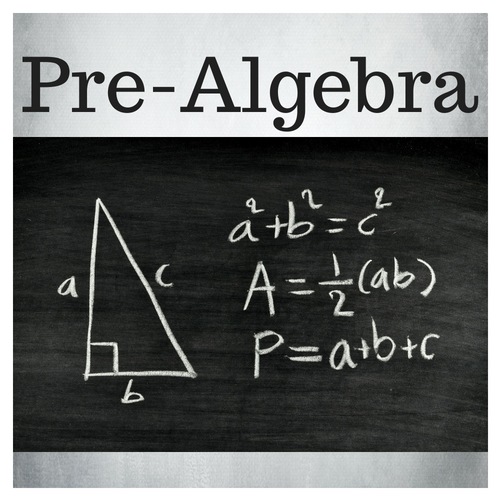
PreAlgebra A & B Montana Digital Academy
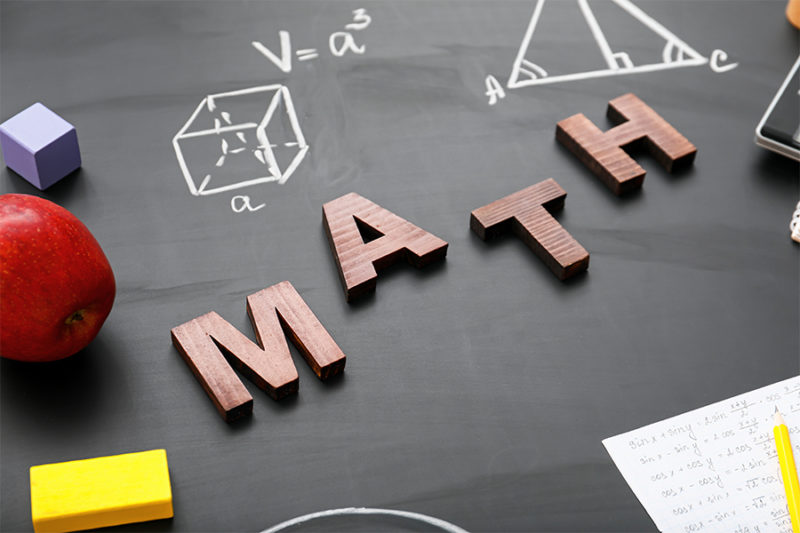
PreAlgebra Cornerstone Tutorial

PreAlgebra Resource Book, Grade 68, Paperback CD4323 Carson

PreAlgebra Basic Introduction! YouTube

PreAlgebra Level Equations Master BASIC Algebra YouTube

Chart PreAlgebra by Carson Dellosa Math

Mathematics Department PreAlgebra Course Syllabus 2014
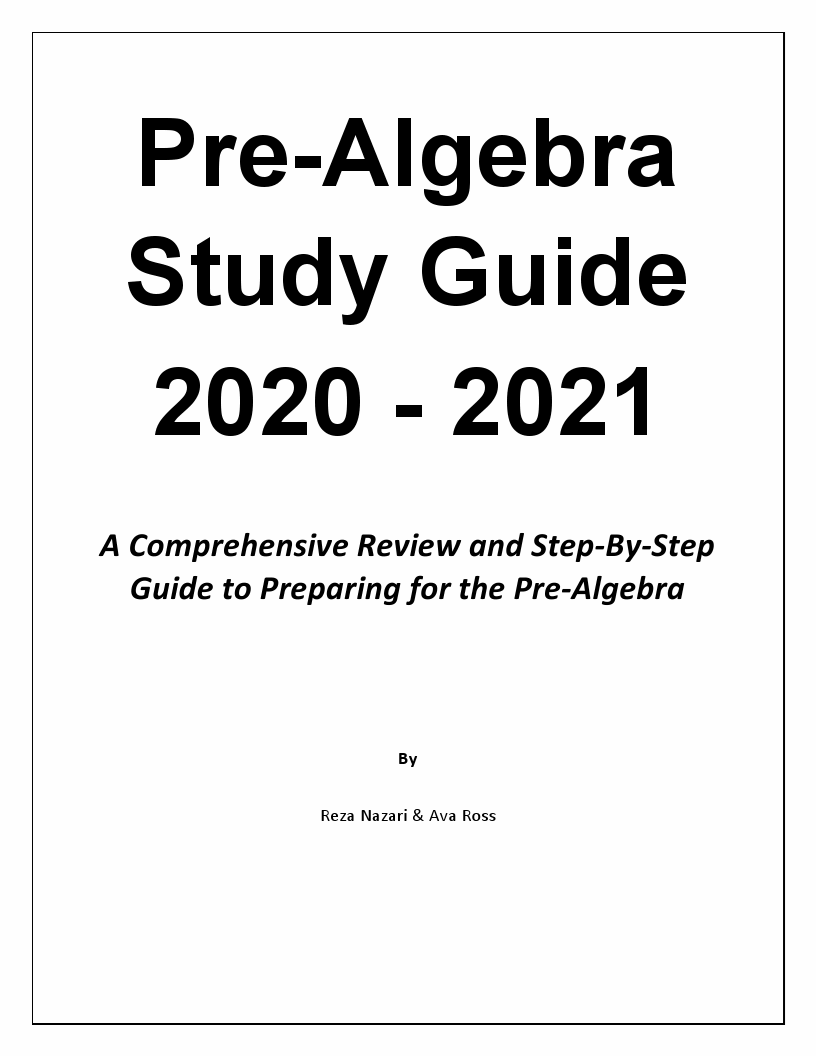
PreAlgebra Study Guide 2020 2021 A Comprehensive Review and StepBy
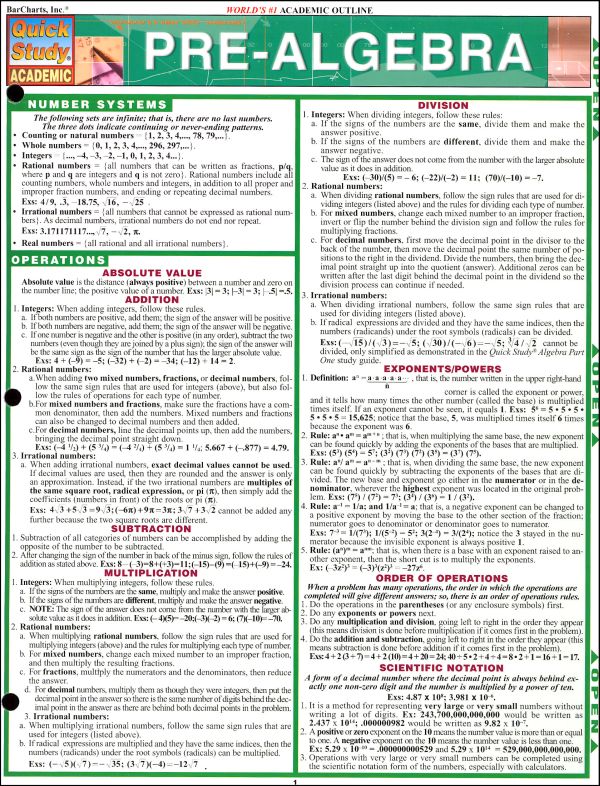
PreAlgebra Quick Study Bar Charts 9781572227262
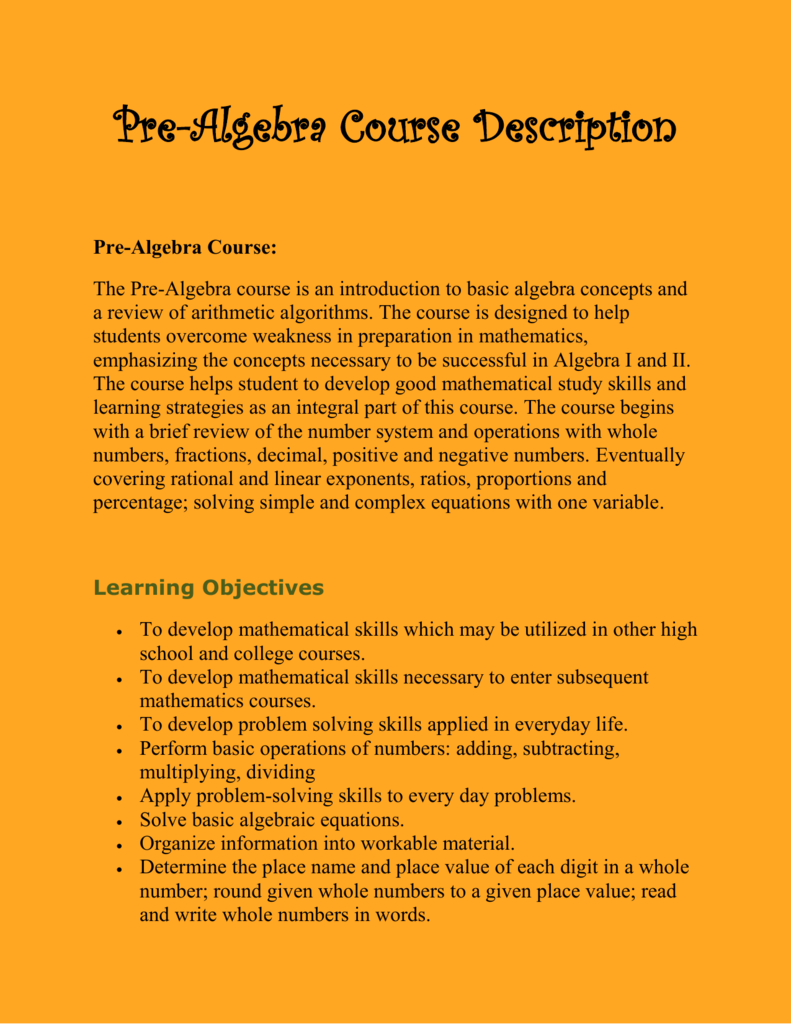
PreAlgebra Course Description
These Skills Learned Will Serve As The Basic Foundation Of Supporting Your Mathematics Learning Throughout High.
Factors And Multiples 0/800 Mastery Points Factors And Multiples Prime And Composite Numbers Prime Factorization Unit 2:
Representing Numbers In Scientific Notation And Extending The Set Of Numbers To The System Of Real Numbers, Which Includes Irrational Numbers;
Engage In A Rigorous Class Building Your Foundation Of Elementary Mathematics.
Related Post: